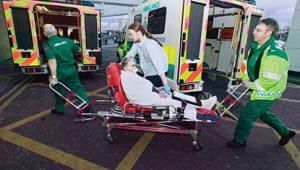In 2016-17 there were 5.8 million emergency admissions – up 2.1% on the previous year – according to analysis of NHS England data by the Public Accounts Committee, released on Friday last week.
The rise comes despite NHS England and its partners developing national programmes to reduce the pressure on A&E departments.
PAC chair Meg Hillier said: “The consequences of the government’s failure to properly fund and coordinate preventive health care and social care are laid bare in this report.
“Around a quarter of emergency admissions to hospital could and should have been avoided.
“The benefits of work to reduce the impact of emergency admissions will inevitably be limited until hospitals, GPs, community services and social care work better together to drive down the level of avoidable admissions.”
There has also been an increase in the number of people being readmitted to hospital in an emergency shortly after an initial inpatient stay.
A report by Healthwatch England in October 2017 estimated that readmission rates rose by as much as 22.8% between 2012–13 and 2016–17.
Izzi Seccombe, chairman of the Local Government Association’s community wellbeing board, said: “The funding gap facing adult social care is set to exceed £2bn by 2020.
“Councils need urgent funding to invest in effective prevention work to reduce the need for people to be admitted to hospital in the first place.”
She added: “Essential prevention work and early intervention services are also being hampered by a £600m million reduction in councils’ public health budgets by central government between 2015–16 and 2019–20.
“The LGA is calling for these reductions to be reversed by the government, which will help to further reduce NHS pressures and costs increasing.”
The PAC has called on NHS England and NHS Improvement to spearhead better understanding of stresses being experienced across the health and social care sectors.











